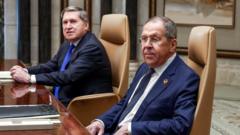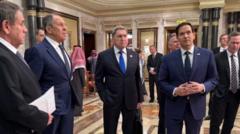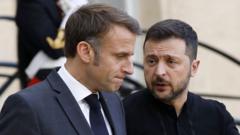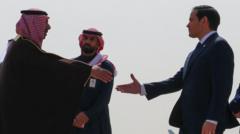**In a strategic meeting marked by careful preparation, Japanese diplomacy aims to strengthen ties and avert trade conflicts while maintaining its position in a rapidly changing geopolitical landscape.**
**Political Strategy: Japan's Diplomatic Maneuvering with Trump**
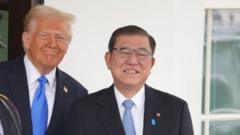
**Political Strategy: Japan's Diplomatic Maneuvering with Trump**
**Amidst global uncertainties, Japan’s Prime Minister Shigeru Ishiba finds success by establishing a cordial rapport with President Donald Trump.**
Prime Minister Shigeru Ishiba of Japan recently met with President Donald Trump at the White House, an encounter that emerged as a significant diplomatic engagement amidst increasing geopolitical tensions. This meeting held importance for Japan, seeking reassurance about its status as a primary ally of the United States in the volatile Asia-Pacific region. It stood out from other contentious global interactions involving Trump, characterized instead by mutual respect and agreement.
After the meeting, Ishiba expressed that while Trump can appear intimidating on television, their face-to-face interaction revealed a sincere and strong-minded leader. Notably, this encounter arrives at a time when Japan has solidified its position as the top foreign investor in the U.S. for the past five years, contributing significantly to job creation.
While concerns over Trump's unpredictable tariffs loomed over Tokyo, the anticipated confrontation did not materialize. Experts had speculated that Ishiba's administration could face unpredictable retaliations similar to what other allies have encountered under Trump's leadership. However, this meeting primarily revolved around positive dialogue rather than disputes.
Preparation was a critical factor in the meeting's success. Ishiba took the initiative to hold "study sessions" with his aides while seeking counsel from former Prime Minister Fumio Kishida. Additionally, he benefited from insights provided by the widow of the late Shinzo Abe, who was known for cultivating a close relationship with Trump during his tenure. This thorough research and personal engagement appeared to resonate well with the U.S. president.
Ishiba proposed an ambitious increase in Japanese investment in the United States, targeting $1 trillion, while also discussing enhanced importation of U.S. liquified natural gas (LNG). This initiative aligns with Trump's pro-drilling stance and reflects a commitment to bolster trade relations between the two countries.
Despite differences regarding contentious issues, such as Trump’s Gaza proposal and the ongoing trade friction with China, Ishiba managed to navigate the complexities by presenting investment opportunities rather than pushing against Trump's policies directly. Additionally, he reiterated Japan’s longstanding support for a two-state solution concerning Israel and Palestine, demonstrating Japan's diplomatic consistency.
Both countries face similar challenges concerning China’s rising influence, yet Japan is cautious about becoming embroiled in the U.S.-China trade tensions, maintaining a careful balance as Beijing remains a significant trading partner. In this shifting geopolitical landscape, Japan's strategy appears to be one of maintaining friendship with the U.S. while avoiding confrontation when possible.
The meeting exemplified a clear strategic approach from Ishiba, emphasizing relationship-building and investment over direct contention. His ability to engage diplomatically with Trump serves as a key moment for Japan amidst regional uncertainties marked by North Korea's nuclear ambitions and China's assertive military activity. This engagement may bolster Japan's status as a reliable ally, further solidifying its role as America’s 'yes' friend in the region.



